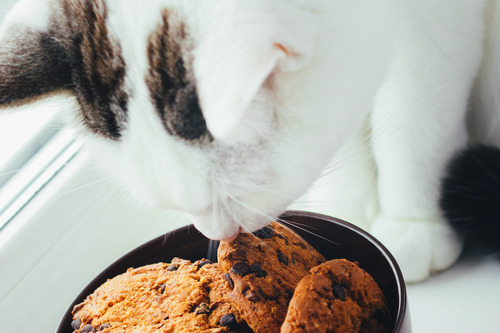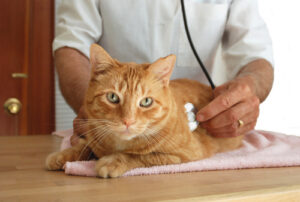Chocolate is a delightful treat that many of us enjoy, but when it comes to sharing your snacks with your cat, it’s important to know what is safe and what could potentially harm your pet. The question “can cats eat chocolate” is one that every cat owner needs to consider carefully to ensure the health and safety of their feline friend. This blog post will explore why chocolate is harmful to cats, the symptoms of chocolate poisoning, and what to do if your cat ingests chocolate.
Why Chocolate Is Toxic to Cats
Chocolate contains substances known as theobromine and caffeine, which are types of stimulants that cats (and dogs) cannot metabolize effectively. The presence of theobromine makes chocolate highly toxic to cats, even in small amounts. Dark chocolate and unsweetened baking chocolate, which contain higher levels of theobromine, are particularly dangerous.
What Happens if a Cat Eats Chocolate?
If a cat ingests chocolate, the toxins can interfere with their nervous system and heart function. Symptoms of chocolate poisoning in cats can appear within a few hours and may include vomiting, diarrhea, rapid breathing, increased heart rate, and even seizures. The severity of the symptoms depends on the amount and type of chocolate ingested and the size of the cat.
Recognizing Chocolate Poisoning in Cats
Knowing the signs of chocolate poisoning is crucial for any cat owner. Look out for unusual restlessness, muscle tremors, and abnormal heart rhythm. These symptoms can progress to more severe conditions, such as internal bleeding or a heart attack, if not treated promptly.
When to Contact Your Veterinarian
If you suspect that your cat has eaten chocolate, it is important to act quickly. Contact Chimacum Valley Veterinary Hospital immediately at (360) 385-4488 or request an appointment online. Do not wait for symptoms to appear, as early intervention is key to preventing more serious health issues.
Preventing Chocolate Poisoning
Prevention is always better than cure. Ensure that all chocolate products are securely stored away from your cat’s reach. Educate everyone in your household about the dangers of feeding chocolate to cats, and be vigilant during holidays like Easter or Christmas when chocolate is more accessible.
Alternatives to Chocolate for Treats
Instead of chocolate, consider healthier treat options for your cat. Many pet-safe treats are designed to be both delicious and nutritious for your cat, providing a safe way to indulge them without the risk of poisoning.
What to Do If Your Cat Eats Chocolate
If you find that your cat has eaten chocolate, try to determine how much they have ingested and what type of chocolate it was. This information will be vital for your veterinarian to know how best to treat your pet.
How the Vet Can Help
Your veterinarian at Chimacum Valley Veterinary Hospital can administer treatments such as activated charcoal, which can prevent the toxins in chocolate from being absorbed into your cat’s bloodstream, and provide supportive care as needed. It is crucial to provide professional care as quickly as possible to ensure the best outcome for your cat.
Understanding the Dangers of Chocolate to Cats
Chocolate is a tempting treat for humans but a potential danger to our feline friends. By understanding the risks and knowing how to respond to any incidents of chocolate ingestion, you can keep your cat safe and healthy. Remember, if you ever have concerns about your cat’s health or need advice on how to handle any emergency, call Chimacum Valley Veterinary Hospital at (360) 385-4488 or book an appointment online. We’re here to help ensure your cat lives a long and healthy life.





